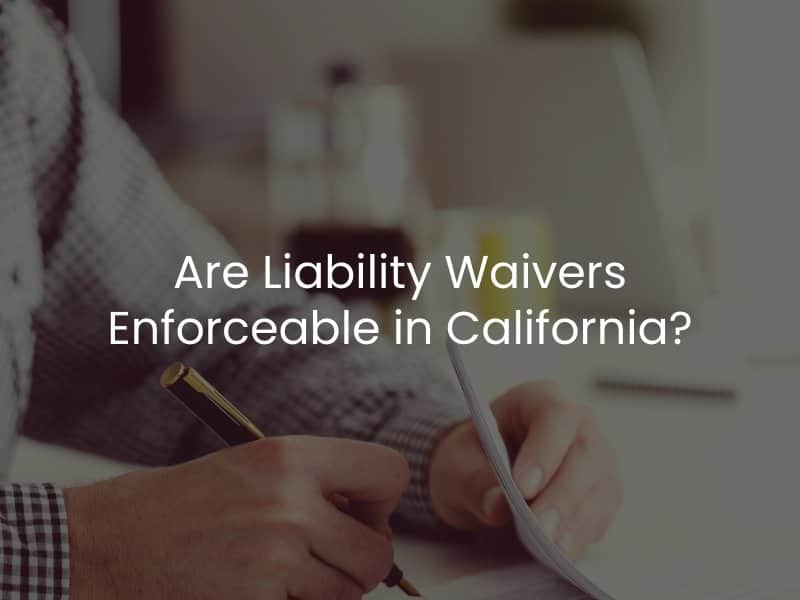Are Liability Waivers Enforceable in California?
Have you ever signed a waiver of liability? Chances are, at some point, you have signed one either for yourself or for your children. In fact, most people sign waivers of liability without ever thinking about what they actually mean.
Waivers of liability are documents that individuals sign before they partake in something that could result in some sort of injury. The waiver essentially means that the person responsible for the activity will not be held liable in the event an injury occurs. However, we want to discuss whether or not liability waivers are enforceable in California.

When are Waivers of Liability Used?
Waivers of liability arise in many situations in California. In general, we will find that waivers of liability are used before a person participates in an activity that could lead to a risk of injury. Some of the most common times when a waiver of liability are signed include the following:
- School sports where a parent signs a waiver to allow their children to play.
- Before participating in a potentially hazardous activity, such as bungee jumping, scuba diving, trampoline parks, etc.
- Before using a rideshare service like Uber or Lyft (the waiver is often within the terms and conditions).
It is also important to point out that there are times when a person takes an “assumption of risk” when participating insert in activities. This assumption of risk could shield a defendant from liability in certain circumstances, even if a valid waiver is not signed. The California Supreme Court has said that the doctrine of primary assumption of risk applies to activities “involving an inherent risk of injury to voluntary participants […] where the risk cannot be eliminated without altering the fundamental nature of the activity.”
When Will a Waiver of Liability not be Enforceable?
In general, waivers of liability are enforceable in California so long as they have been drafted correctly and explicitly discuss the scope of coverage. Waivers also have to be legible and use high visibility text, and they cannot illegally waive unknown or unrelated claims.
There are some circumstances where a waiver of liability may not be upheld. This includes:
- Maliciousness of a defendant. Most waivers cannot protect a person from being held liable for fraud, recklessness, or intention to harm another.
- Waiver did not adequately warn of risks. Liability waivers need to clearly state the known risks involved with an activity so the participant can give their informed consent. Missing language or ambiguous language can invalidate the waiver.
- Waiver contained errors. The language of the waiver must obey relevant California laws when it comes to these types of contracts. Improperly worded waivers or waivers that violate law or public policy will likely not hold up in court.
Working With an Attorney
If you or somebody you care about has been injured as a result of the carelessness or negligence of someone else, you need to speak to an attorney as soon as possible. Even if you have signed a liability waiver, a personal injury attorney needs to examine the waiver to determine whether or not it will be upheld in court. There are many circumstances that could invalidate a waiver of liability and allow you to recover compensation for your injuries.